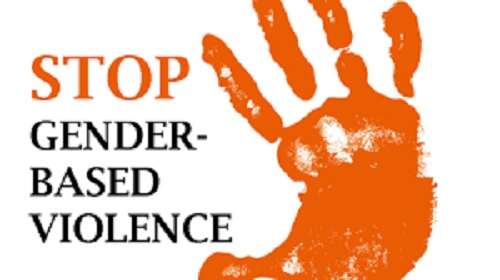
Sexual and gender-based violence (SGBV) is a terminology that was not popular two decades ago, but now seen almost every day on the pages of national dailies. It is unfortunate that a huge number of women and girls have sustained life-long trauma from this, mainly due to ignorance. SGBV, particularly intimate partner violence and sexual violence, is a major public and clinical health challenge and a violation of women’s human rights. It is rooted in and perpetuates gender inequalities.
The World Health Organisation (WHO) defines SGBV as “any sexual act, attempt to obtain a sexual act, or other act directed against a person’s sexuality using coercion, by any person regardless of their relationship to the victim, in any setting. It includes rape, which is perceived as the physically forced or otherwise coerced penetration of the vulva or anus with a penis, other body part or object.” The subject of SGBV is more worrisome as it is a global phenomenon, with one in three women experiencing physical and/or sexual violence in their lifetime, mostly by an intimate partner, as stated by the apex health institution.
SGBV can take different forms, including sexual violence, physical violence, emotional or psychological violence, socio-economic violence, and domestic violence. It generally includes all harmful practices against girls and women, which impact the female’s overall health. Experts opine that violence can negatively affect women’s physical, mental, sexual, and reproductive health. It is associated with increased risk of injuries, depression, anxiety disorders, unplanned pregnancies, sexually transmitted infections, HIV and many other health problems.
A more disturbing fact is that effects of SGBV transcend survivors to their children, who may suffer a range of behavioural and emotional disturbances. These can lead to mental and developmental problems and also be associated with perpetrating or experiencing violence later in life.
A survivor’s experience
In a chat with a survivor, named Evelyn Obinna, she sobbingly recalled her ordeal in the hands of her husband, whom she had separated from for over a year now. Even as she is presently coping with her three children after the incident, Evelyn still nurses deep trauma from the violence, saying she never for one day imagined that her husband, with whom she had been wedded in a Pentecostal church, could turn wild overnight.
“It all started when my husband, who is a contractor stopped receiving businesses from his regular customers. While I was on a salary job, I tried to assist with some domestic expenses in the family, and even children’s school fees and other stuff. However, things didn’t improve for him financially, and he started mounting more pressure on me. The bubble burst when I summoned courage to tell him that I wasn’t having much on me and that I couldn’t cope with too many financial demands. Since that day, he began with abusive words, but I didn’t mind him.
“He progressed to nagging the children, while I appealed to them to overlook his reactions. Thereafter, it degenerated to physically assaulting me, as he kicked me while sleeping, and even spat on my face several times, as I tried to ask the reason for his misbehaviour. Even with all these abuse, I still managed to keep the family together financially.
“Eventually, the thought of quitting the marriage came the day he threatened me with a kitchen knife, asking for my ATM card and pin. Thankfully, a neighbour came to rescue me after screaming so loud for help. For months, I couldn’t recover from the shock and trauma of my husband threatening me with knife. For my safety and that of the children, we left for an undisclosed place, and started living our lives afresh.
“If it could happen to me, then it can happen to any woman. My counsel to all women and girls is that SGBV is real, and it starts gradually. So, be vigilant; always check your spouse’s emotions and reactions to issues before it gets worse; to enable you raise the alarm for experts intervention,” she narrated.
Charting progress path on SGBV
In an exclusive interview with Pharmanews, a Consultant Psychologist on Human Capital Development Programme, Dr Victoria Daaor, has advised SGBV survivors to seek counselling from recognised healthcare practitioners on how to move forward in life. She acknowledged the difficulty in overcoming the trauma after such incidents, and thus the need for adequate counselling.
Daaor, who is also a gender-based violence advocate, says survivors should endeavour to indulge in what they love doing, listen to music, cultivate warm relationships, as well as rely on friends and family for healing.
For women who have survived domestic violence from their spouses and are presently having phobia for men, the consultant psychologist said, “The women need counselling. It is normal to have such maladaptive behaviour after deep trauma and only proper counselling and therapy can help them. They can access such at some clinical psychology departments in some hospitals.
“They should embark on spending time doing the things they love. Then building relationships and relying on their friends and families will help them a great deal. They should work on their physical health and sometimes listening to music for healing of their souls.”
Meanwhile data from WHO, the joint UN Human Reproduction Programme and the United Nations Inter-Agency Working Group on Violence Against Women Estimation, showed that an estimated 27 per cent of women and girls older than 15 years have experienced physical or sexual intimate partner violence globally, although rates are much higher in some regions and countries. Most aggressors are men.
Evidence shows that both women who experience intimate partner violence and the children who are affected, either directly or indirectly, are at a higher risk of developing mental health conditions. While men perpetrating intimate partner violence may also be at a higher risk of mental health conditions.
A minor’s encounter
Tolulope Adeniyi, an adolescent also shared her childhood sexual violence story from a neighbour, who pretended to be a caring brother. The perpetrator, an electrician by vocation, was always inviting Adeniyi, who was nine years old then, to his shop to run errands for him. According to her, after running the errands, he usually gifted her money, usually the change on the purchases he had made for him. With such disposition over time, Adeniyi, whose parents barely had enough to meet their feeding needs, became fond of Mr Kola Agbo.
In her words, “As an unsuspecting girl, I didn’t realise the game Agbo was playing initially until he started pulling me to himself, to be caressing my body in his shop. I felt he was trying to pet me at the onset of the whole thing, until it became an everyday affair before I reported to my mother.
“He eventually denied when confronted, as I was not knowledgeable enough to get an evidence to nail him. Thereafter, I developed a deep hatred for him, but the evil deed has been done already, as he has created a negative notion of men to me.”
Bridging mental health gaps for survivors
For innocent girls like Adeniyi, Dr Daaor charged their guardians to report such violations to organisations like the International Federation of Female Lawyers (FIDA), the gender desk of the Nigeria Police, the Human Rights Commission or any of the many relevant NGOs to help them access justice.
In a recent attempt to chart progress path on the fight against SGBV across the globe, Professor Helen Fisher from King’s College London, UK, who is a co-director of the UKRI Violence, Abuse and Mental Health Network, acknowledged the link between intimate partner violence and mental health, stressing the need to bridge existing gaps.
She said, “Recognition of the association between intimate partner violence and mental health conditions has grown in the past 10 years, but huge gaps and areas for improvement remain.
“Improving understanding of the links between violence and mental health is the first step. The next step is to train people on how best to address these often severe, ongoing issues.”
Corroborating Fisher’s submission, Dr Daaor shared precise actions survivors can take to reduce their vulnerability as well as address their mental health issues. The psychologist urged them to seek therapy as well as get engaged in vocations or trade that will boost their financial empowerment, as most perpetrators indulge in finance weaponisation, which make females vulnerable to their traps.
In case of rape, Daaor asked survivors to call neighbours for immediate help, and thereafter report at the nearest NAPTIP’s office for formal handling of the case, in order to ensure that perpetrators are appropriately punished.











